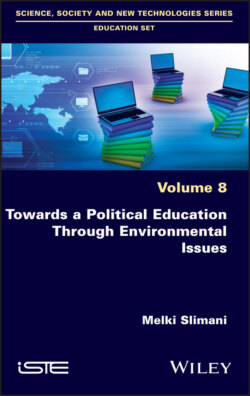Читать книгу Towards a Political Education Through Environmental Issues - Melki Slimani - Страница 26
1.3.6. Issues of transitioning to sustainability
ОглавлениеTransitions are processes of change from systems associated with social services such as housing, transportation, energy, food and water supply to more sustainable systems. They are
processes of fundamental social change in response to societal challenges. They reflect a particular diagnosis of persistent social problems, in which persistence is attributed to the path dependency of dominant practices and structures (i.e. “regimes”), whose resolution requires long-term and structural change. By their very nature, transitions involve politics in the broadest sense of the word. (Avelino et al. 2016, p. 557)
According to Loorbach et al. (2017), the concept of regime, defined as a dominant and stable configuration in a societal system, is the most central notion in transition studies. This idea is at the heart of an original perspective in transition analyses: the multi-level perspective (MLP). The latter draws its origins from historical studies of system change on the one hand, and from the evolutionary economy on the other. It recognizes the co-evolutionary development of technologies, institutions and economic subsystems by putting forward the presence of three levels whose dynamics and interactions make it possible to understand transitions: the landscape or macro-level, the regimes or meso-level and the niches or micro-level.
The landscape (macro) level is composed of the overall socio-technical framework and macro-political developments that form the context of the transition. It is a kind of backdrop for the other two levels by stimulating and exerting pressure on the socio-technical regime.
The regime (meso) level comprises the structures that represent the practices and routines at stake, such as the rules and dominant technologies that ensure the stability and strengthening of the prevailing socio-technical systems. It can also be a barrier to change technological and social innovations.
The niche (micro) level is a designated space for experimentation and radical innovation. This level is loosely structured compared to the regime level. It is less influenced by the market and regulation. Coordination between niche actors is weaker than between regime actors. This allows the emergence of new interactions between actors that can support innovation (Loorbach et al. 2017).
Twomey and Gaziulusoy (2014), in a literature review on innovations and transition theories, note that “socio-technical transitions” is an umbrella term that includes two other perspectives in addition to the multi-level perspective (MLP): the transition management (TM) perspective and the strategic niche management (SNM) perspective. In fact, according to these authors, the latter two perspectives are derived from the former.
Research in the SNM perspective focuses on the niche level by emphasizing user participation in any early technological development. This approach has been inspired in part by historical studies showing that many successful innovations started as niche technologies and gradually overturned a dominant regime. The main concern of the SNM perspective is to establish processes by which innovative experiences can evolve into viable market niches to contribute to a shift towards a more sustainable socioeconomic environment (Twomey et al. 2014).
Research in the TM perspective takes a broad system perspective that encompasses the three levels of the MPL perspective framework. It is concerned with the dynamics of structural change in society and the appropriate manner and timing for initiating, facilitating or shaping transformation. As in the MPL perspective, the importance of experimentation and learning is central. However, the starting point for the TM perspective is not a technological innovation but a societal challenge, such as how to meet the demand for energy, transportation or housing in a sustainable manner (Twomey et al. 2014).
